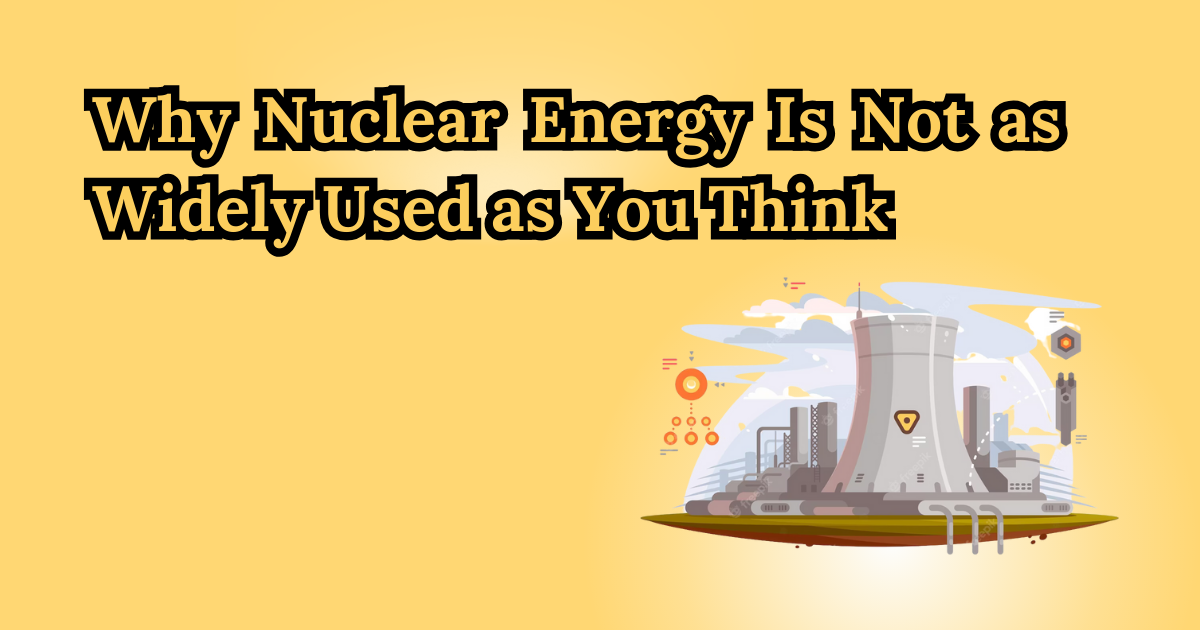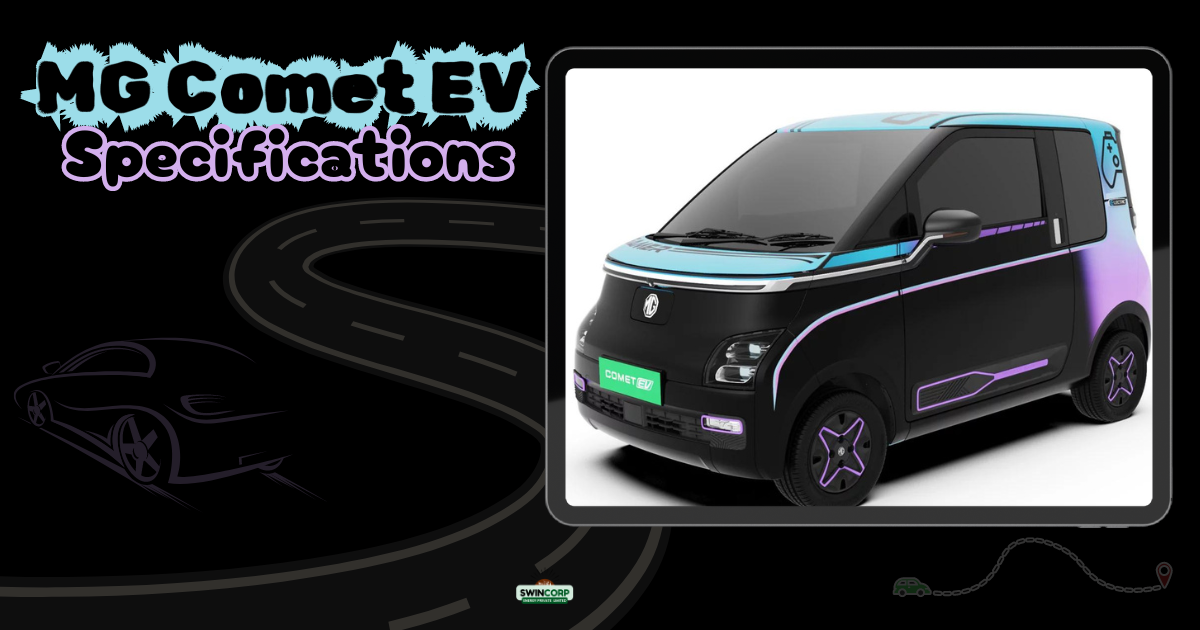What is Nuclear Energy ?

Before moving into the topic let’s look at what exactly Nuclear Energy is?
Nuclear energy is the energy released from the nucleus of an atom. This energy can be used to generate electricity, heat homes and businesses, and power ships and submarines.
Energy is produced in nuclear power plants. These plants use a controlled nuclear reaction to heat water, which turns into steam and powers a turbine. The turbine generates electricity, which is then distributed to homes and businesses.
Working of a Nuclear Power Plant

- The fuel used in a nuclear power plant is uranium. Uranium is a radioactive element that contains atoms with a large number of neutrons.
- The uranium is enriched, which means that the number of neutrons in the atoms is increased. This makes the uranium more likely to undergo a nuclear reaction.
- The enriched uranium is placed in the reactor core of the nuclear power plant. The reactor core is surrounded by a moderator, which slows down the neutrons so that they are more likely to interact with the uranium atoms.
- When a neutron interacts with a uranium atom, it can split the atom, releasing energy. This energy is released in the form of heat.
- The heat from the nuclear reaction is used to heat water. The water turns to steam and powers a turbine.
- The turbine generates electricity, which is then distributed to homes and businesses.
The advantages of nuclear energy include:
- It is a clean source of energy. Nuclear power plants do not produce greenhouse gasses, which contribute to climate change.
- It is a reliable source of energy. Nuclear power plants can generate electricity around the clock, regardless of the weather.
- It is a safe source of energy. Nuclear power plants are designed with multiple safety features to prevent accidents.
The disadvantages of nuclear energy include:
- It is a high-cost source of energy. The upfront cost of building a nuclear power plant is very high.
- It has a long construction time. It can take many years to build a nuclear power plant.
- There is a risk of nuclear accidents. Nuclear accidents can release radioactive material into the environment, which can have a harmful impact on human health and the environment.

Why Nuclear Energy Is Not as Widely Used as You Think
Nuclear energy is a controversial topic, with strong arguments for and against its use. Here are some of the reasons why nuclear energy is not as widely used as you might think:
- The high cost of nuclear energy : The upfront cost of building a nuclear power plant is very high. This is due to the complex safety features that are required to prevent accidents. The cost of operating a nuclear power plant is also high, due to the need for security and maintenance.
- Safety: There is always the risk of a nuclear accident, such as the Chernobyl disaster in 1986 or the Fukushima Daiichi disaster in 2011. These accidents can have devastating consequences, both in terms of human life and environmental damage.
- Waste disposal: Nuclear power plants produce radioactive waste, which must be disposed of carefully. There is no perfect solution for waste disposal, and this is a major concern for many people.
- Public perception: Nuclear energy is not popular with many people, who are concerned about the risks involved. This can make it difficult to get public support for new nuclear power plants.
Despite these challenges, nuclear energy can be a clean and efficient source of energy. It does not produce greenhouse gasses, and it can provide a reliable source of electricity. If the challenges of nuclear energy can be overcome, it could play a significant role in meeting our energy needs in the future.
Here is how we can reshape the future of nuclear energy:
- Develop new, safer nuclear reactor designs.
- Find better ways to dispose of nuclear waste.
- Work to reduce the proliferation risk of nuclear technology.
- Educate the public about the benefits and risks of nuclear energy.
By addressing these challenges, we can make nuclear energy a more viable option for meeting our energy needs in the future.
In the context of India, there are a few additional reasons why nuclear energy is not as widely used as it could be:
- India has a limited uranium resource base.
- India has not yet developed a strong nuclear safety culture.
- There is public opposition to nuclear power in some parts of India.
Despite these challenges, India is committed to expanding its nuclear power program. The country has ambitious plans to build 21 new nuclear power reactors by 2030. If these plans are successful, nuclear energy could play a significant role in India’s energy mix in the coming decades.
Conclusion
Despite the challenges, nuclear energy has the potential to play a major role in reducing our reliance on fossil fuels. However, it is important to address the concerns about the cost, construction time, safety, and proliferation risk of nuclear energy. With careful planning and execution, nuclear energy can be a clean, safe, and reliable source of energy for the future.
READ OUR PREVIOUS ARTICLES:
List of Solar Power Plants in India | Top 10 Largest Solar Power Plants in India
Is India Ready for Electric Vehicles ?
Best Rooftop Solar Panels For Home
Best Solar Lights for your Home
Keys: nuclear energy, clean energy, renewable energy, fossil fuels, climate change, safety, cost, construction time, public perception, proliferation risk, baseload power, Nuclear power plant, Uranium, Reactor core, Moderator, Turbine, Electricity, Greenhouse gasses, Accidents,advantages of nuclear energy, disadvantages of nuclear energy





G20 Summit 2023: A Turning Point for the Global Economy - swincorp
[…] JSW Energy Share PriceAdvantages of Nuclear Energy […]
3KW Solar Power System 2023: Cost, Subsidy. - Swincorp Energy
[…] Advantages of Nuclear Energy […]
Solar Cell Types - Swincorp Energy
[…] Advantages of Nuclear Energy […]
Disadvantages of Hydropower | Swincorp Energy - Swincorp Energy
[…] Advantages of Nuclear Energy […]
Solar Panel Manufacturing: Process, Production Stages - Swincorp Energy
[…] Advantages of Nuclear Energy […]
Solar Panel Efficiency And Performance Metrics - Swincorp Energy
[…] Advantages of Nuclear Energy […]
A Guide to Solar Inverters - Swincorp Energy
[…] Advantages of Nuclear Energy […]
Solar Trackers : Types, Pros, Cons | Swincorp Energy - Swincorp Energy
[…] Advantages of Nuclear Energy […]
Tata Punch EV: On Road Price, Range, Review - Swincorp Energy
[…] Advantages of Nuclear Energy […]
MG Comet EV - Features, Specs & Everything You Need to Know (2024) - Swincorp Energy
[…] Advantages of Nuclear Energy […]
Maruti Brezza CNG: Mileage, Review, Features - Swincorp Energy
[…] Advantages of Nuclear Energy […]
vpyhtnsxFubUawI
QLagNZjwiepvn